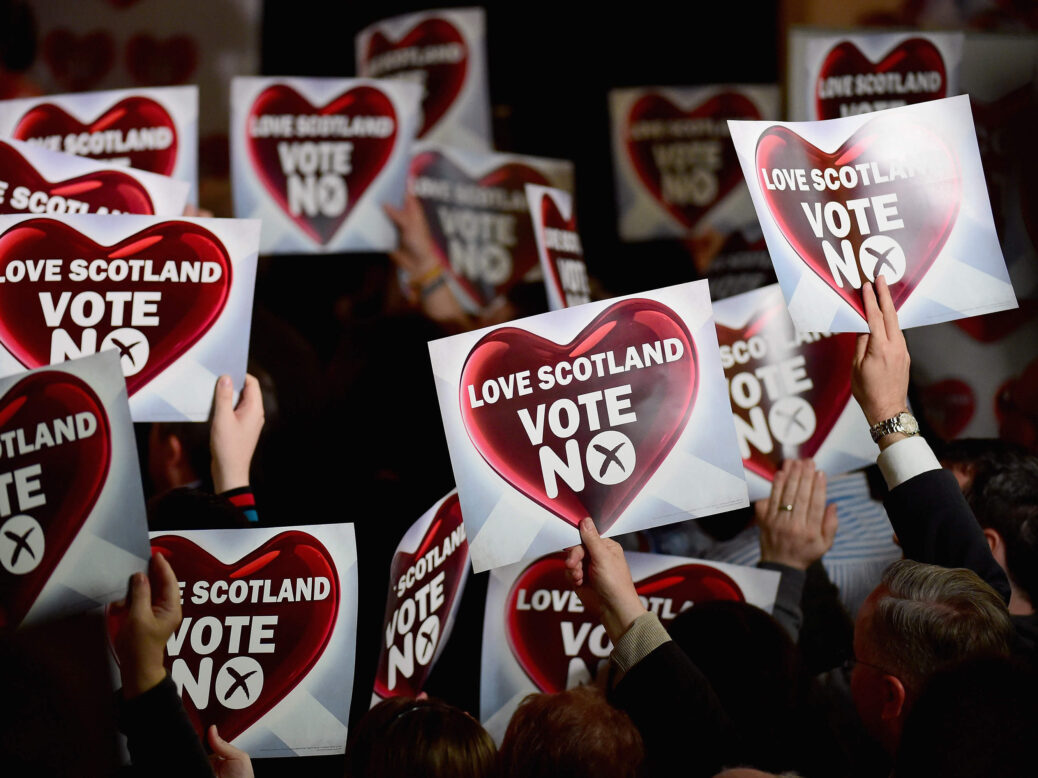
For more on Scotland explore our new elections site, May2015.com.
Two more pollsters, YouGov and Survation, have now published their final polls.
They both handed the unionists a slender lead: YouGov are forecasting a 52 to 48 per cent victory and Survation suggest it will be 53/47.
YouGov’s poll, for the Times/Sun, was conducted online over the past three days; Survation’s was a phone poll carried out in the last 24 hours. Different methodologies produced the same result.
This contrasts with last week when YouGov’s poll over the weekend put the Yes campaign ahead for the first time, only for Survation to quell panic in the unionist camp and suggest No were still in front. Since then every poll bar one, which had a sample size of 700 and wasn’t as well-weighted as most, has put the unionists ahead.
Tonight’s polls echo earlier results from Panelbase, Opinium, ICM, and Ipsos MORI. Three of them called it 52/48. MORI was the outlier, but still put No ahead 51/49.
Some commentators think the race is still close-to-call, and have warned against reading too much into the betting markets, which suggest the No campaign are far more favoured than the polls suggest. But a number of pollsters and psephologists think it more likely than the polls are missing ‘shy Noes’ than hidden ‘Yesses’: tomorrow’s result might be more convincingly anti-independence than we are expecting.
The wary point to the waves of new voters that will take part this year, with turnout expected to be 80-90 per cent – far more than the 64 and 51 per cent that voted in the 2010 Westminster and 2011 Holyrood elections.
But YouGov weight their polls to reflect this. 24 per cent of their sample are those who didn’t vote in those elections, and their views, which have tended towards keeping the union, are reflected in their headline numbers.
Finally, YouGov’s poll had a higher sample size than usual. They polled around 3,000 people, compared to the 1,000 pollsters typically ask. This makes the margin of error on their poll slightly better.
On a typical poll the results are said to be correct ±3 per cent. With 3,000 that falls to just under ±2 per cent. Could the polls still be wrong, given how close the No lead is to falling within the margin of error? The fact that all the polls show a No lead suggests not.
A Yes victory tomorrow would now undoubtedly be an upset.






